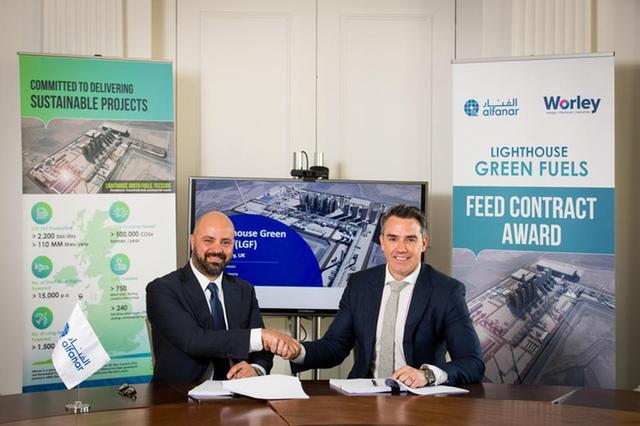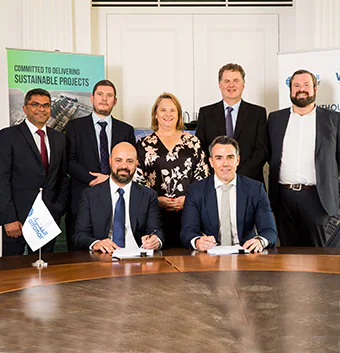American Australian engineering company Worley has won a front-end engineering and design (FEED) services contract by Saudi-based Alfanar for a low-carbon fuels project in Teesside, UK.
According to a statement from Worley, the project Lighthouse Green Fuels will convert residual solid waste into sustainable aviation fuel (SAF) and green naphtha.
The plant is expected to enter commercial operations in 2027, following the scheduled start-up of the first Department for Business, Energy and Industrial Strategy (BEIS) carbon cluster in Teesside.
Worley’s scope of work
The project will process approximately one million tonnes of residual solid waste – such as municipal solid waste, refuse-derived fuel or solid recovered fuel – into approximately 3,200 bbl/day of SAF and green naphtha, every year.
Under the terms of the contract, Worley will provide FEED services and develop the existing early front-end engineering package and integrate the licensor scope to provide a greater level of definition to the project. The services will be led by its offices in the UK with support from specialists around the world and its Global Integrated Delivery team.
The company added that these fuels have the potential to produce 80% fewer greenhouse gas emissions compared to current fossil fuels.


“The UK has an opportunity to be at the forefront of the SAF sector, with its access to suitable feedstocks and planned carbon capture infrastructure. Alfanar has committed to the next major phase of the Lighthouse Green Fuels plant by awarding Worley the FEED contract. We chose Worley because of its commitment to supporting sustainable projects and significant experience with delivering complex megaprojects,” said Noaman Aladhami, UK country manager, Alfanar Energy Ltd.
Bradley Andrews, president at Worley said: “Our work with Alfanar on this important project will contribute to the decarbonisation of air and road transportation.
“The project aims to make fuel which produces 80% fewer greenhouse gases than current fossil fuels, which could potentially save over 300,000 tonnes per annum of emissions each year. When coupled with carbon capture and storage technology, the plant could achieve in excess of 750,000 tonnes per annum.”
“Low-carbon fuels is a strategic priority for Worley and we look forward to supporting Alfanar in its energy transition journey while remaining aligned with our purpose of delivering a more sustainable world,” he concluded.



